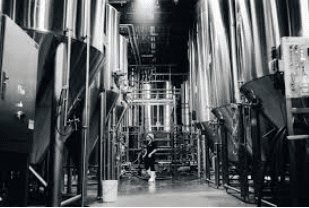The age-old practice of food fermentation has gained immense popularity owing to the health benefits and organoleptic properties associated with the same.
Yes, the benefits associated with fermented food aren’t just confined to health. It is believed that the food tastes better after fermentation. Apart from being an age-old practice for food preservation, the process is utilized to enhance the flavor of food.
Microbes are present all around, from soil to the human body, they are present in abundance. But all of them aren’t harmful. A few are beneficial to health and keep illness at bay. The key is getting it balanced!
An age-old practice
Food fermentation was initially confined to dairy. The natural microflora that exists in milk makes it the easiest thing to ferment. It is believed that fermentation came into existence spontaneously. The goat bags draped over the camels of North America were the producers of the first yogurts, the subtropical climate being a facilitator of the same. As far as 10,000 B.C.E, the cattle milk was naturally fermented. Subsequently, the early dairy farmers utilized the process to make cheese. They found that they could store the dairy products for a longer time by fermentation and that is how cheese came into existence. Fermentation has been used in food preservation since the Neolithic times.
Respiration without air!
The year 1856 is quite significant when it comes to defining fermentation. The French chemist, Louis Pasteur connected yeast to the process and defined fermentation as -“respiration without air”. He found that the process did not occur in the absence of cellular propagation. Until then, it was a process of preservation.
Later in the early 1900, the Russian bacteriologist Elie Metchnikoff highlighted the health benefits associated with fermentation. The Bulgarians of early 1900 had an average lifespan of 87 years which was an exceptional trait. He investigated their lifestyle and found that they consumed more fermented milk. Later several experiments were done and the bacteria that fermented the milk was found.
Subsequently, modern science investigated further and developed a new food culture called probiotics. Probiotics are foods that contain friendly bacteria. It is believed that fermented foods are naturally high in friendly bacteria.
The science behind food preservation
The science behind food preservation can be easily explained by the fact that fermentation is an anaerobic process, it occurs in an airless environment.
- The entire process depends on the transformational action of the microbes.
- The desirable bacteria that thrive in the environment end up digesting sugar and starch to release alcohol and other organic acids necessary to preserve food.
- The bacteria that cause spoilage don’t thrive in this anaerobic environment.
- It can thus be concluded that fermentation is controlled decay and the food that results from the same is neither fresh nor rotten.
Fermentation – facilitating an enhanced nutritional content
Fermented foods are associated with several health benefits like improving digestive health and boosting immunity. They are a rich source of vitamin B and K2. Studies show that they promote good heart health and work wonders for mental health. Fermentation adds more to the nutritional content of food. They are thus an essential part of a healthy diet.
Fermented Indian cuisines
Fermented Indian foods are often designated as superfoods owing to the health benefits they provide. They form a significant part of Indian cuisines and are prepared in several ways across the country. Enduri pitha, Hawaijar, Selroti, and Dhokla are a few of them.
Need to team up with the microbes
Teaming up with microbes has always been beneficial to humans. Consuming fermented foods and choosing organic products that facilitate good soil health make room for a healthy ecosystem. Fermented foods are less with health benefits and play a key role in the food processing industry.









